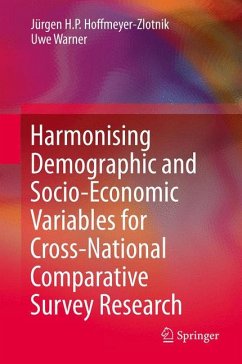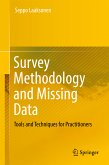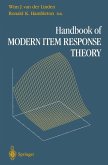This book explains harmonisation techniques that can be used in survey research to align national systems of categories and definitions in such a way that comparison is possible across countries and cultures. It provides an introduction to instruments for collecting internationally comparable data of interest to survey researchers. It shows how seven key demographic and socio-economic variables can be harmonised and employed in European comparative surveys. The seven key variables discussed in detail are: education, occupation, income, activity status, private household, ethnicity, and family. These demographic and socio-economic variables are background variables that no survey can do without. They frequently have the greatest explanatory capacity to analyse social structures, and are a mirror image of the way societies are organised nationally. This becomes readily apparent when one attempts, for example, to compare national education systems. Moreover, a comparison of the national definitions of concepts such as "private household" reveals several different historically and culturally shaped underlying concepts. Indeed, some European countries do not even have a word for "private household". Hence such national definitions and categories cannot simply be translated from one culture to another. They must be harmonised. ¿
Dieser Download kann aus rechtlichen Gründen nur mit Rechnungsadresse in A, B, BG, CY, CZ, D, DK, EW, E, FIN, F, GR, HR, H, IRL, I, LT, L, LR, M, NL, PL, P, R, S, SLO, SK ausgeliefert werden.









